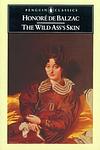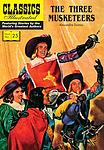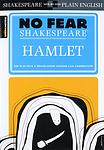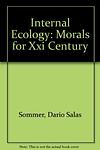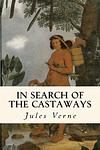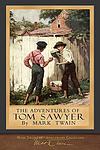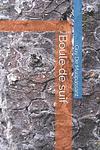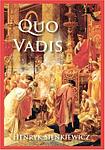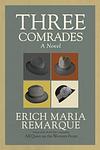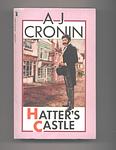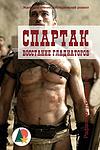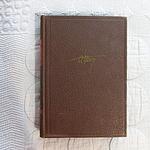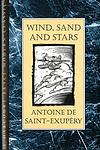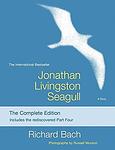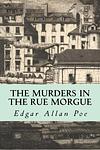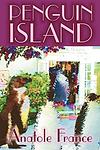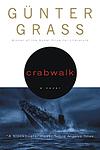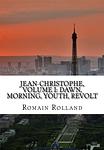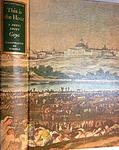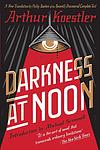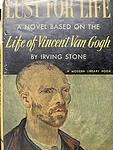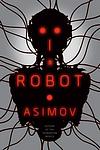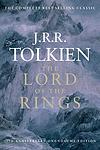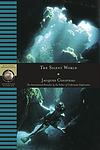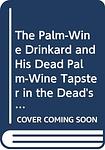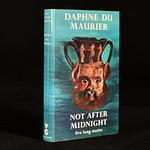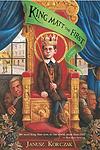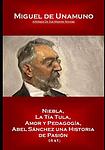100 Books of Classical and Modern Foreign Literature
This is one of the 286 lists we use to generate our main The Greatest Books list.
-
The Divine Comedy by Dante Alighieri
In this epic poem, the protagonist embarks on an extraordinary journey through Hell (Inferno), Purgatory (Purgatorio), and Paradise (Paradiso). Guided by the ancient Roman poet Virgil and his beloved Beatrice, he encounters various historical and mythological figures in each realm, witnessing the eternal consequences of earthly sins and virtues. The journey serves as an allegory for the soul's progression towards God, offering profound insights into the nature of good and evil, free will, and divine justice.
-
Gargantua and Pantagruel by Francois Rabelais
"Gargantua and Pantagruel" is a satirical and humorous tale of two giants, Gargantua and his son Pantagruel. The narrative is filled with bawdy humor, wordplay, and grotesque and exaggerated characters, reflecting the realities of 16th-century France. The book is also known for its profound insights on education, religion, and politics, often criticizing the corruption and hypocrisy of the powerful. The novel is a rich blend of fantasy, comedy, and philosophical discourse, making it a classic of Renaissance literature.
-
Don Quixote by Miguel de Cervantes
This classic novel follows the adventures of a man who, driven mad by reading too many chivalric romances, decides to become a knight-errant and roam the world righting wrongs under the name Don Quixote. Accompanied by his loyal squire, Sancho Panza, he battles windmills he believes to be giants and champions the virtuous lady Dulcinea, who is in reality a simple peasant girl. The book is a richly layered critique of the popular literature of Cervantes' time and a profound exploration of reality and illusion, madness and sanity.
-
Tartuffe by Molière
This classic French play revolves around the character Tartuffe, a hypocritical and cunning man who pretends to be deeply pious and religious. He manages to deceive Orgon, a wealthy family patriarch, into believing in his piety. Orgon is so taken in by Tartuffe that he decides to marry him off to his daughter, despite her love for another man. The family works together to expose Tartuffe's true nature, leading to a series of comic and dramatic events. The play is a satirical critique of religious hypocrisy and gullibility.
-
The Traveller by Oliver Goldsmith
"The Traveller" is a poem that explores the observations and reflections of a speaker who journeys across various European landscapes, comparing the virtues and vices of different nations. Throughout his travels, the speaker examines the social and political characteristics of each country, pondering on themes such as happiness, freedom, and the nature of government. The poem ultimately suggests that despite the diversity of customs and institutions, true contentment is found not in external circumstances but within oneself, and that every society has its own blend of flaws and perfections. The work is a contemplative piece that invites readers to consider the universal quest for happiness and the complex interplay between society and the individual.
-
The Wild Ass's Skin by Honoré de Balzac
The novel revolves around a young, impoverished Parisian named Raphaël de Valentin who stumbles upon a magical piece of donkey skin that grants him the power to fulfill any desire at the cost of shortening his life with each wish. As he grapples with this Faustian bargain, Raphaël is torn between his ambitions and the fear of death, embarking on a journey of indulgence and introspection. The narrative explores themes of fate, materialism, and the human condition, ultimately questioning whether the pursuit of happiness and the fulfillment of desires can truly lead to contentment.
-
Melmoth the Wanderer by Charles Robert Maturin
"Melmoth the Wanderer" is a gothic novel that tells the story of John Melmoth, a man who sells his soul to the devil for 150 extra years of life, and spends that time wandering the earth in search of someone who will take over the pact for him. The narrative is a complex series of nested stories, told by many different characters, and it explores themes of guilt, redemption, and the inherent evil of mankind.
-
Robinson Crusoe by Daniel Defoe
The book is a classic adventure novel about a man who spends 28 years on a remote tropical island near Trinidad, encountering cannibals, captives, and mutineers before being rescued. The story is noted for its realistic portrayal of the protagonist's physical and psychological development and for its detailed depiction of his attempts to create a life for himself in the wilderness. The novel has been interpreted as an allegory for the development of civilization, as well as a critique of European colonialism.
-
In Search of Lost Time by Marcel Proust
This renowned novel is a sweeping exploration of memory, love, art, and the passage of time, told through the narrator's recollections of his childhood and experiences into adulthood in the late 19th and early 20th century aristocratic France. The narrative is notable for its lengthy and intricate involuntary memory episodes, the most famous being the "madeleine episode". It explores the themes of time, space and memory, but also raises questions about the nature of art and literature, and the complex relationships between love, sexuality, and possession.
-
The Three Musketeers by Alexandre Dumas
Set in 17th century France, the novel follows the adventures of a young man who leaves home to join the Musketeers of the Guard. He befriends three of the most daring musketeers, Athos, Porthos, and Aramis, and together, they navigate political intrigue, love affairs, and duels. Their main enemies are the powerful Cardinal Richelieu and the beautiful but treacherous Milady, who will stop at nothing to bring them down.
-
The Pickwick Papers by Charles Dickens
The book is a humorous and satirical depiction of English society in the 19th century, told through the travels and adventures of a group of gentlemen from London, led by a kind-hearted and naive man. Their escapades take them to various locales where they encounter a plethora of eccentric characters and find themselves in comical and sometimes absurd situations. The narrative is interspersed with tales and anecdotes told by the characters themselves, adding to the richness and diversity of the overall story.
-
Les Misérables by Victor Hugo
Set in early 19th-century France, the narrative follows the lives and interactions of several characters, particularly the struggles of ex-convict Jean Valjean and his journey towards redemption. The story touches upon the nature of law and grace, and elaborates upon the history of France, architecture of Paris, politics, moral philosophy, antimonarchism, justice, religion, and the types and nature of romantic and familial love. It is known for its vivid and relatable characters, and its exploration of societal and moral issues.
-
Faust by Johann Wolfgang von Goethe
The book is a tragic play in two parts that tells the story of a scholarly man named Faust, who becomes dissatisfied with his life and makes a pact with the devil, Mephistopheles. In exchange for unlimited knowledge and worldly pleasures, Faust agrees to give his soul to Mephistopheles after death. The narrative explores themes of ambition, despair, love, and redemption, ultimately leading to Faust's salvation.
-
The Red and the Black by Stendhal
The novel is a detailed psychological portrait of Julien Sorel, a young man from a provincial background who aspires to rise above his humble beginnings. He uses his intelligence and hypocrisy to advance in the post-Napoleonic French society, which is deeply divided by class and political loyalties. The story is a critique of the society's materialism and hypocrisy as Julien's ambitions lead him to a tragic end. The title refers to the contrasting uniforms of the army and the church, the two routes available to him for upward mobility.
-
Ivanhoe by Sir Walter Scott
Set in 12th-century England, the novel follows the story of Wilfred of Ivanhoe, a young Saxon knight, returning from the Crusades. He is disowned by his father for his allegiance to the Norman king Richard the Lionheart. The narrative encompasses themes of chivalry, rivalry, and the struggle between Saxons and Normans, while also highlighting the tension between Jews and Christians. The tale is known for its action-filled tournaments, sieges, and the character of Rebecca, a virtuous and strong Jewish woman.
-
Hamlet by William Shakespeare
This classic play revolves around the young Prince of Denmark who is thrown into a state of emotional turmoil after his father's sudden death and his mother's quick remarriage to his uncle. The prince is visited by the ghost of his father who reveals that he was murdered by the uncle, prompting the prince to seek revenge. The narrative explores themes of madness, revenge, and moral corruption as the prince navigates the complex political and emotional landscape of the Danish court.
-
The Last of the Mohicans by James Fenimore Cooper
Set during the French and Indian War, this historical novel follows the journey of Hawkeye, a skilled frontiersman, and his two Mohican companions as they guide two daughters of a British colonel through the dangerous wilderness of the American frontier. The group faces numerous perils and conflicts, not only from the war-torn landscape and hostile tribes, but also from a treacherous Huron scout. The novel explores themes of racial conflict, survival, and the fading of indigenous cultures.
-
Internal Ecology Morals For Xxi Century by Dario Salas Sommer
This book delves into the intricate relationship between individual moral development and the broader ecological balance of our planet, proposing that the environmental crises of the 21st century are deeply intertwined with the moral and ethical decay observed in contemporary society. The author argues that by fostering a deeper understanding of our internal ecology—our thoughts, emotions, and spiritual well-being—we can cultivate a more harmonious relationship with the external world. Through a blend of philosophical insight and practical guidance, the text invites readers to embark on a journey of personal transformation as a foundational step towards addressing the global environmental challenges of our time, emphasizing the critical role of individual responsibility and ethical conduct in shaping a sustainable future.
-
In Search Of The Castaways by Jules Verne
This adventure novel follows the thrilling journey of Captain Grant's children, who embark on a global quest to find their missing father with the help of a detailed but cryptic message found in a bottle. Accompanied by the generous Lord Glenarvan and his crew aboard the Duncan, they navigate through South America, Australia, and New Zealand, facing natural disasters, encountering exotic locales, and overcoming formidable obstacles. Throughout their perilous expedition, the group demonstrates resilience, ingenuity, and unwavering hope, showcasing the human spirit's capacity to endure in the face of uncertainty.
-
The Adventures of Tom Sawyer by Mark Twain
The book chronicles the mischievous adventures of a young boy living on the Mississippi River in the mid-19th century. The protagonist, a clever and imaginative boy, often finds himself in trouble for his pranks and daydreams. His escapades range from his romance with a young girl, his search for buried treasure, his attendance at his own funeral, and his witnessing of a murder. The narrative captures the essence of childhood and the societal rules of the time.
-
Boule De Suif by Guy de Maupassant
This narrative is a poignant exploration of social hypocrisy and moral contrasts set against the backdrop of the Franco-Prussian War. It follows a diverse group of French passengers traveling by coach from Rouen to Le Havre, among them a well-regarded prostitute named Boule de Suif. Despite her low social standing, Boule de Suif displays unparalleled patriotism and kindness, offering food to her fellow travelers. However, when the group is detained by a Prussian officer who demands an evening with Boule de Suif as the price for their passage, the others pressure her into compliance for their own benefit. After she sacrifices her dignity, they hypocritically ostracize her, revealing the stark moral failings of the so-called respectable members of society.
-
The Picture of Dorian Gray by Oscar Wilde
The novel follows the life of a handsome young man who, after having his portrait painted, is upset to realize that the painting will remain beautiful while he ages. After expressing a wish that the painting would age instead of him, he is shocked to find that his wish comes true. As he indulges in a life of hedonism and immoral acts, his portrait becomes increasingly grotesque, reflecting the damage his actions have on his soul. The story serves as a cautionary tale about the dangers of vanity, selfishness, and the pursuit of pleasure without regard for consequences.
-
Thus Spake Zarathustra by Friedrich Nietzsche
This philosophical novel explores the idea of the Übermensch, or "Overman," a superior human being who has achieved self-mastery and created personal meaning in life. The protagonist, Zarathustra, descends from his solitary life in the mountains to share his wisdom with humanity. Through a series of speeches and encounters, he challenges traditional beliefs about good, evil, truth, and religion, and advocates for the transcendence of man into a higher form of existence. The book is noted for its critique of morality, its poetic and often cryptic language, and its exploration of complex philosophical concepts.
-
The Catcher in the Rye by J. D. Salinger
The novel follows the story of a teenager named Holden Caulfield, who has just been expelled from his prep school. The narrative unfolds over the course of three days, during which Holden experiences various forms of alienation and his mental state continues to unravel. He criticizes the adult world as "phony" and struggles with his own transition into adulthood. The book is a profound exploration of teenage rebellion, alienation, and the loss of innocence.
-
Treasure Island by Robert Louis Stevenson
This classic adventure novel tells the story of young Jim Hawkins, who stumbles upon a treasure map and embarks on a perilous journey to find the buried treasure. Along the way, he encounters a host of memorable characters, including the cunning and treacherous Long John Silver. The narrative is filled with action, intrigue, and suspense, as Hawkins and his companions face pirates, mutiny, and other dangers in their quest for the hidden treasure.
-
Quo Vadis by Henryk Sienkiewicz
Set in ancient Rome during the reign of Emperor Nero, "Quo Vadis" follows the love story of a young Christian woman Lygia and a Roman patrician, Marcus Vinicius. As their relationship blossoms, they must navigate the dangerous political climate of the time, marked by Nero's tyranny and the growing influence of Christianity. The novel provides a vivid depiction of the clash between pagan Rome and the early Christian church, culminating in the Great Fire of Rome and subsequent persecution of Christians.
-
Three Comrades by Erich Maria Remarque
Set in the interwar period in Germany, the novel revolves around the deep bond of friendship between three World War I veterans struggling to adapt to civilian life amidst the economic and social turmoil of Weimar Republic. The trio copes with their trauma and disillusionment by sticking together and seeking solace in their shared experiences. Their camaraderie is further enriched and complicated by the arrival of a beautiful, spirited woman, who becomes intimately entwined with their lives. As they navigate the challenges of love, loss, and the scars of war, the story poignantly captures the fragility of hope and the enduring spirit of friendship against the backdrop of a society on the brink of monumental change.
-
The Works Of Johannes Bobrowski by Johannes Bobrowski
This book is a comprehensive exploration of the literary contributions of Johannes Bobrowski, a significant figure in 20th-century literature. Through detailed analysis and commentary, the author, Ivan Bobrovsky, delves into Bobrowski's poetic and narrative works, highlighting his profound engagement with history, memory, and the landscapes of Eastern Europe. Bobrovsky's examination not only sheds light on the thematic and stylistic nuances of Bobrowski's writing but also situates his oeuvre within the broader context of European literature, revealing the depth and complexity of his engagement with the tumultuous history of the region. Through this meticulous study, the reader gains insight into Bobrowski's unique literary voice and his enduring legacy as a writer deeply attuned to the nuances of human experience and historical memory.
-
Death Of A Hero by Richard Aldington
This novel is a poignant exploration of the disillusionment and devastation wrought by World War I, told through the life and eventual demise of its protagonist, George Winterbourne. Enlisting with idealistic fervor, Winterbourne's experiences on the front lines strip him of his illusions, exposing the grim realities of combat and the incompetence of the British military leadership. As he navigates the horrors of war, his story also delves into his pre-war life and relationships, offering a stark contrast between the innocence of his early years and the brutal awakening he faces as a soldier. Ultimately, the narrative serves as a scathing critique of the societal and military values that led to such senseless loss of life, encapsulating the disillusionment of a generation scarred by the First World War.
-
Hatter's Castle by A. J. Cronin
This novel unfolds the tragic tale of James Brodie, a tyrannical Scottish hat maker in the late 19th century, whose obsession with social status and material success leads to the downfall of his family. Set against the backdrop of the town of Levenford, the narrative explores themes of ambition, pride, and the consequences of a rigid adherence to societal expectations. As Brodie's relentless pursuit of wealth and respectability spirals out of control, his family members suffer from his neglect and cruelty, each in their own way trying to escape or cope with the oppressive atmosphere of their home. The story is a poignant examination of the destructive power of a patriarchal figure whose inability to show vulnerability or compassion leads to his ultimate ruin and serves as a cautionary tale about the dangers of unchecked ambition and the importance of empathy and emotional connection.
-
Blue Bird by Maurice Maeterlinck
This classic play tells the story of two children, Mytyl and Tyltyl, who embark on a magical journey in search of the Blue Bird of Happiness. Guided by the Fairy Bérylune, they explore various realms – the Land of Memory, the Palace of Night, the Kingdom of the Future, and more – encountering symbolic figures like the Cat, the Dog, Light, and the Souls of Bread. Throughout their quest, they learn profound lessons about happiness, the nature of good and evil, and the value of appreciating the simple joys of their own lives. The narrative is a rich tapestry of fantasy, philosophy, and a quest for meaning, emphasizing the idea that true happiness is often found closest to home.
-
Martin Eden by Jack London
The novel follows the life of a poor, self-educated sailor who becomes a successful writer. The protagonist struggles to rise above his social class, driven by his love for a refined, upper-class woman. His journey leads him through various experiences, from physical labor to intellectual pursuits, highlighting the challenges of social mobility and the disillusionment that often accompanies success. Despite achieving his dreams, he becomes disenchanted with the very society he sought to join, leading to a tragic end.
-
The Tartar Steppe by Dino Buzzati
The novel follows a young officer who spends his entire life waiting for an attack that never comes at a remote desert outpost. The protagonist's life is consumed by the monotonous routine and the fear of the unknown, reflecting on the human condition and the dread of the passage of time. The desert symbolizes the emptiness and futility of life, while the constant anticipation of a foreign invasion that never happens represents the anxiety and fear of death.
-
Spartacus by Raffaello Giovagnoli
This historical novel delves into the life of Spartacus, a Thracian gladiator who becomes the leader of a major slave uprising against the Roman Republic. The narrative vividly portrays his journey from a captive gladiator to a charismatic leader, rallying slaves and gladiators to fight for their freedom against the formidable Roman legions. Through battles, strategies, and the inevitable tragedies of war, the story not only explores themes of freedom, leadership, and resistance but also delves into the complexities of human nature and the quest for liberty. The novel is a blend of historical facts and creative fiction, bringing to life the legendary figure of Spartacus and his indomitable spirit.
-
The Forsyte Saga by John Galsworthy
"The Forsyte Saga" is a series of three novels and two interludes that chronicle the lives of a wealthy, upper-middle-class family in England during the late 19th and early 20th centuries. The saga explores themes of social class, wealth, love, and the changing societal norms of the time, with a particular focus on the character of Soames Forsyte and his obsessive desire to possess both people and things. The narrative provides a detailed examination of the family's fortunes, misfortunes, and intricate relationships, offering a critique of the materialistic culture of the era.
-
Cabbage And Kings by O. Henry
This book is a collection of interconnected short stories set in the fictional Central American country of Anchuria. Through a blend of humor, irony, and insight, the narrative explores themes of love, politics, and adventure among a colorful cast of characters, including American expatriates, local officials, and revolutionaries. The stories weave together to paint a vivid picture of life in a tropical banana republic, showcasing the author's trademark wit and masterful storytelling. The title itself hints at the mix of mundane and regal elements that characterize the tales, reflecting on the complexities and contradictions of human nature and society.
-
The Good Soldier Svejk by Jaroslav Hašek
"The Good Soldier Svejk" is a satirical novel set during World War I, following the story of a Czech soldier in the Austro-Hungarian army. Svejk, the protagonist, is a simple-minded, good-natured man who is frequently arrested for bungling jobs due to his apparent idiocy. Despite his constant run-ins with authority, Svejk manages to maintain his cheerful disposition and even takes advantage of his perceived stupidity to manipulate the system. The book offers a humorous and critical perspective on the absurdity of war and the incompetence of military bureaucracy.
-
The Last Inch by James Aldridge
The novel revolves around the gripping tale of a young boy's unwavering determination and resilience. Set against the backdrop of World War II, the protagonist, a teenage boy, embarks on a perilous journey across war-torn Europe in a desperate attempt to reunite with his family. Facing numerous challenges and navigating through the dangers of a continent engulfed in conflict, his journey is a testament to the strength of the human spirit and the power of hope. Through his eyes, readers experience the horrors of war, the complexity of human emotions, and the indomitable will to survive against all odds.
-
Wind, Sand and Stars by Antoine de Saint-Exupéry
This book is a memoir by an early twentieth-century French aviator, sharing his experiences as a pioneer of aviation in the 1920s and 1930s, particularly in remote places such as the Sahara Desert and the Andes Mountains. The author reflects on the nature of adventure, the allure of the unknown, and the profound connection between human beings and the natural world. The book is also notable for its philosophical musings on the nature of life and death, solitude and solidarity, and the human condition.
-
The Immoralist by André Gide
"The Immoralist" is a novel that explores the journey of a man who, after a near-death experience, indulges in hedonistic and selfish behavior, rejecting societal norms and moral constraints. The protagonist, a scholar, embarks on a journey of self-discovery and self-indulgence after being diagnosed with tuberculosis. His pursuit of physical and sensual experiences leads him to abandon his wife and career, leading to a life of isolation and self-destruction. The book delves into themes of morality, freedom, and the human condition.
-
Lord of the Flies by William Golding
A group of British boys are stranded on an uninhabited island after their plane crashes during wartime. Initially, they attempt to establish order, creating rules and electing a leader. However, as time passes, their civility erodes, and they descend into savagery and chaos. The struggle for power intensifies, leading to violence and death. The novel explores themes of innocence, the inherent evil in mankind, and the thin veneer of civilization.
-
War of the Worlds by H. G. Wells
This classic science fiction novel tells the story of a Martian invasion of Earth, as experienced by an unnamed protagonist and his brother. The Martians, who are technologically far superior to humans, cause widespread devastation with their heat-ray weapons and towering tripods. Despite humanity's best efforts to resist, they seem unstoppable. The novel is a commentary on British imperialism and explores themes of human survival and evolution.
-
The Moon And Sixpence by W. Somerset Maugham
The novel is a fictionalized account inspired by the life of the painter Paul Gauguin. It follows Charles Strickland, a stockbroker who abandons his wife and children to pursue his passion for painting. Strickland's relentless and uncompromising pursuit of artistic expression leads him to a life of poverty in Paris and ultimately to Tahiti, where he finds a new muse in the exotic landscape and people. His disregard for social convention and personal relationships is portrayed in stark contrast to his sublime artistic achievements, raising questions about the nature of genius, the sacrifices made for art, and the price of personal freedom.
-
La Jeune Parque by Paul Valéry
This work is a profound and intricate poem that delves into the inner turmoil and reflections of a young woman standing at the crossroads of life. Through its dense and allusive verse, the poem explores themes of love, choice, and identity, weaving together classical mythology with personal introspection. The young woman's contemplation of her past and future, her desires, and her fears, serves as a vehicle for broader philosophical inquiries into the nature of the self, the transient nature of beauty and youth, and the search for meaning in a seemingly indifferent universe. The poem's rich imagery and complex structure have made it a landmark of modernist literature, celebrated for its linguistic innovation and its deep, resonant exploration of the human condition.
-
King Solomon's Mines by H. Rider Haggard
This adventurous novel follows the journey of a group of explorers who set out to find the legendary King Solomon's Mines in unexplored Africa. Led by a brave hunter, they face numerous dangers including wild animals, hostile tribes, and harsh landscapes. Their journey becomes a fight for survival, and they discover a lost kingdom along the way. The novel explores themes of colonialism, masculinity, and the allure of the unknown.
-
Jonathan Livingston Seagull by Richard Bach
The book tells the story of Jonathan Livingston, a seagull who is bored with the daily squabbles over food and is seized by a passion for flight. He pushes himself, learning everything he can about flying, to the point of being ostracized from his flock. He becomes an extremely high flyer, and meets other gulls who have been ostracized for not conforming. The story is about self-perfection and self-sacrifice for the sake of a higher purpose, symbolizing the pursuit of perfection in some form.
-
Snow Country by Yasunari Kawabata
"Snow Country" is a poignant tale of a tragic love affair between a wealthy city-dweller and a provincial geisha. Set in a remote hot-spring town in the snowy Japanese mountains, the story explores the depth of human emotions, loneliness, and the ephemeral nature of beauty and love. The narrative is filled with vivid imagery and symbolism, reflecting the melancholic and transient beauty of the snow country, and the inevitable fate of the characters.
-
The Clown by Heinrich Böll
Set in post-World War II Germany, the novel follows the life of a professional clown who is in a personal crisis after being left by his long-term girlfriend. The protagonist, who is unable to find work due to his political views, spends a day reflecting on his life, his broken relationship, and the harsh realities of the society around him. The narrative offers a stark critique of Catholicism and the economic miracle in post-war Germany.
-
Tender Is the Night by F. Scott Fitzgerald
Set in the French Riviera in the 1920s, the novel traces the tragic tale of a young psychiatrist, his beautiful wife, and the drama that unfolds amongst their circle of wealthy expatriate friends. The psychiatrist's wife suffers from mental illness, which leads to his own downfall as he struggles to keep his marriage intact and maintain his professional reputation. The narrative explores themes of wealth, love, desire, and the destructive power of obsession, painting a haunting portrait of the dark side of the glamorous Jazz Age.
-
The Murders in the Rue Morgue by Edgar Allan Poe
"The Murders in the Rue Morgue" is a mystery novel that follows an amateur detective who uses his extraordinary analytical skills to solve a series of brutal murders that have baffled the police. The victims, two women, were killed in their locked Paris apartment under mysterious circumstances. The detective, with his unique method of deductive reasoning, uncovers the shocking truth behind the murders, revealing an unexpected perpetrator.
-
Germinal by Émile Zola
The novel is a bleak and realistic portrayal of coal miners' lives in 19th century France. The protagonist, a young man who starts work in a mine, becomes embroiled in the hardship and exploitation faced by the workers, leading to his involvement in a strike. The story explores themes of poverty, social injustice, and the struggle for workers' rights, while also providing a detailed depiction of mining life, from the dangerous work conditions to the close-knit communities.
-
Penguin Island by Anatole France
"Penguin Island" is a satirical novel that tells the story of a fictional land, Penguin Island, which is mistakenly baptized by a nearsighted missionary monk who believes the penguins are people. The novel then traces the history of this civilization, drawing parallels with French history and satirizing its politics, religion, and social mores. The narrative also incorporates elements of fantasy, such as penguins transforming into humans, and uses these elements to critique and lampoon human society and its institutions.
-
Pygmalion by George Bernard Shaw
"Pygmalion" is a play that explores the transformative power of education and the nature of language and communication. It follows the story of a cockney flower girl named Eliza Doolittle who is taught to speak and behave like a duchess by a pompous phonetics professor, Henry Higgins. Throughout the process, Eliza develops self-respect and personal dignity, challenging the Victorian society's rigid class system. The play also questions the idea of 'making' someone and the moral responsibility that comes with it.
-
The Castle by Franz Kafka
This novel presents the story of a man who arrives in a village and struggles to gain access to the mysterious authorities who govern it from a castle. The protagonist, a surveyor, faces the constant frustration of his efforts to make contact with the elusive authorities and integrate into village society. The book explores themes of alienation, bureaucracy, the seemingly endless frustrations of man's attempts to stand against the system, and the futile pursuit of an unobtainable goal.
-
The Glass Bead Game by Hermann Hesse
Set in the 23rd century, the novel revolves around a highly intellectual game, the Glass Bead Game, which incorporates all fields of human and cosmic knowledge. The story follows the life of Joseph Knecht, a scholar who becomes a Magister Ludi (Master of the Game). The book explores his life and thoughts, including his relationships with others and his questioning of the values of his society. The narrative is a profound exploration of human life, knowledge, and spirituality.
-
The Stoic by Theodore Dreiser
This novel serves as the concluding chapter in the life of its protagonist, a wealthy and influential businessman whose journey through success, love, and personal evolution has been chronicled in previous works. Set against the backdrop of early 20th-century America, the narrative delves into the protagonist's introspective quest for meaning beyond material wealth and societal status. As he faces the twilight of his life, he grapples with the philosophical and existential questions that have shadowed him, seeking solace in the principles of Stoicism. Through his reflections and relationships, the story explores themes of ambition, morality, and the search for a tranquil mind amidst the inevitable trials of life.
-
Crabwalk by Günter Grass
This novel delves into the tragic sinking of the Wilhelm Gustloff, a German ship, during World War II, through the eyes of a journalist investigating the event's historical and personal ramifications. The narrative weaves together past and present, exploring the intergenerational impact of the catastrophe on survivors and their descendants. The author employs a unique storytelling technique, the "crabwalk," moving backward and forward in time to reveal the complexities of guilt, memory, and the reinterpretation of history. Through its intricate plot and deep character exploration, the book addresses the themes of nationalism, the repercussions of war, and the struggle to come to terms with one's heritage.
-
Jean Christophe by Romain Rolland
This expansive novel chronicles the life of a gifted German musician, from his early years in a Rhineland village, through his turbulent development as an artist, to his maturity and recognition as a composer. Set against the backdrop of Europe's cultural and political landscape at the turn of the 20th century, the protagonist's journey is one of passion, struggle, and the relentless pursuit of artistic freedom. Through his friendships, loves, and artistic endeavors, the narrative delves into themes of personal growth, the nature of genius, and the universal search for meaning. The protagonist's life story is a testament to the power of resilience and the indomitable spirit of the creative mind.
-
This Is The Hour by Lion Feuchtwanger
This historical novel transports readers to the vibrant and tumultuous world of Renaissance Florence, focusing on the life and times of the legendary artist and thinker, Leonardo da Vinci. Through meticulous research and vivid storytelling, the narrative delves into Leonardo's relentless pursuit of knowledge, his unparalleled genius in both art and science, and his complex relationships with his contemporaries. Set against the backdrop of political intrigue, war, and the cultural flourishing of the Italian Renaissance, the book offers a compelling exploration of the challenges and triumphs of a man far ahead of his time, highlighting his contributions to humanity and his eternal quest for understanding the mysteries of the world.
-
A Farewell to Arms by Ernest Hemingway
Set during World War I, the novel follows an American ambulance driver in the Italian army and his love affair with a British nurse. The story is a first-person account of the protagonist's experiences in war and his struggle to survive amidst chaos and destruction. The narrative explores themes of love, war, and the fragility of life, culminating in a tragic ending that underscores the futile nature of war and the inevitable suffering it brings.
-
Darkness at Noon by Arthur Koestler
"Darkness at Noon" is a novel set during the Stalinist purges in Russia in the 1930s. The story follows an old Bolshevik, who is imprisoned and psychologically tortured by the government he helped create. As he reflects on his life and the choices he made, he grapples with the betrayal of his revolutionary ideals and the corruption of the Soviet regime. The narrative provides a profound exploration of the moral danger inherent in a system that is willing to sacrifice the individual for the supposed collective good.
-
Lust For Life by Irving Stone
This novel is a vivid portrayal of the tumultuous and passionate life of a renowned post-impressionist painter. It delves deeply into his struggles with poverty, mental illness, and a largely unappreciated genius during his lifetime. The narrative is rich with the artist's fervent desire to capture the essence of life and beauty through his revolutionary art, despite facing rejection and misunderstanding from those around him. Through a blend of factual research and imaginative interpretation, the book brings to life the painter's intense relationships, his bouts of fervor and despair, and his relentless pursuit of artistic innovation and expression, offering readers a compelling insight into the soul of a man who transformed pain and tragedy into some of the world's most beloved works of art.
-
The Plague by Albert Camus
The novel is set in the Algerian city of Oran during the 1940s, where a deadly plague sweeps through, causing the city to be quarantined. The story is told through the eyes of a doctor who witnesses the horror and suffering caused by the disease. The narrative explores themes of human resilience, solidarity, and the struggle against the absurdities of life. It also examines how individuals and society respond to death and disease, creating a profound meditation on the nature of existence and human endurance.
-
Nausea by Jean Paul Sartre
The novel follows a historian living in a small French town, struggling with a strange and unsettling feeling of disgust and revulsion he calls 'nausea'. He grapples with the existential dread of his own existence and the meaningless of life, continually questioning his own perceptions and the nature of reality. As he navigates through his everyday life, he is plagued by his philosophical thoughts and the overwhelming sensation of nausea, leading him to a profound existential crisis.
-
The Unbearable Lightness of Being by Milan Kundera
Set against the backdrop of the Prague Spring period of Czechoslovak history, the novel explores the philosophical concept of Nietzsche's eternal return through the intertwined lives of four characters: a womanizing surgeon, his intellectual wife, his naïve mistress, and her stoic lover. The narrative delves into their personal struggles with lightness and heaviness, freedom and fate, love and betrayal, and the complexities of human relationships, all while offering a profound meditation on the nature of existence and the paradoxes of life.
-
Our Man In Havana by Graham Greene
The book is a satirical espionage novel set in pre-revolutionary Cuba, where a hapless vacuum cleaner salesman is recruited by British intelligence to serve as their operative in Havana. Despite his lack of experience and qualifications, he fabricates intelligence reports to appease his superiors, inadvertently triggering a cascade of increasingly absurd and dangerous events. As the line between fiction and reality blurs, the protagonist finds himself entangled in a web of deception and political intrigue that satirizes the absurdities of the Cold War era and the follies of intelligence agencies.
-
The Spy Who Came in From the Cold by John le Carré
This novel is a fascinating tale of espionage during the Cold War, centered around a British intelligence officer who is seemingly ready to end his spy career. However, he is given one last mission before his retirement: to bring down the head of East German Intelligence. As he navigates the dangerous world of spies and double agents, he is forced to confront his own past and the sacrifices he has made for his country. The story is a complex exploration of morality, loyalty, and the personal cost of political conflict.
-
Le Coq Et L'arlequin by Jean Cocteau
This book is a notable manifesto that critiques the influence of German music on French national identity, advocating instead for a return to French musical traditions and the embrace of modernity. Written in the early 20th century, it emphasizes the importance of simplicity, clarity, and the incorporation of elements from popular culture and other arts into music. The author, a prominent figure in the avant-garde movement, calls for a rejection of Wagnerism and a celebration of French composers and artists who embody these principles. Through its vivid prose and passionate argumentation, the work seeks to inspire a cultural renaissance that redefines French music and its role in the broader artistic landscape.
-
Nineteen Eighty Four by George Orwell
Set in a dystopian future, the novel presents a society under the total control of a totalitarian regime, led by the omnipresent Big Brother. The protagonist, a low-ranking member of 'the Party', begins to question the regime and falls in love with a woman, an act of rebellion in a world where independent thought, dissent, and love are prohibited. The novel explores themes of surveillance, censorship, and the manipulation of truth.
-
April Fool's Day by Josip Novakovich
This book is a poignant narrative that follows the life of Ivan Dolinar, born in Croatia on April 1, 1948, a date that marks both his birth and the myriad of misfortunes and absurdities that will follow him throughout his life under Tito's communist regime. The story weaves through Ivan's experiences, from his early years in a country marred by political upheaval, through his time in prison due to a series of misunderstandings and unfortunate events, to his eventual emigration. Through a blend of dark humor and tragedy, the novel explores themes of identity, the absurdity of bureaucratic systems, and the struggle for survival in a world that often seems as unpredictable and cruel as it is beautiful. The narrative serves as a powerful commentary on the human condition and the arbitrary nature of fate, all while providing a vivid window into the history and culture of the Balkans during a tumultuous period.
-
Fahrenheit 451 by Ray Bradbury
In a dystopian future where books are banned and burned by the government to prevent dissenting ideas, a fireman named Guy Montag, whose job is to burn books, begins to question the society he serves. After a series of events, including meeting a free-thinking teenager and witnessing a woman choosing to die with her books, Montag begins to secretly collect and read books, leading to his eventual rebellion against the oppressive regime. The narrative serves as a critique of censorship, conformity, and the dangers of an illiterate society.
-
Sartoris by William Faulkner
This novel delves into the complex dynamics of the Sartoris family, set in the post-Civil War South. It explores themes of honor, decay, and the struggle between the old and new South through the lens of the Sartoris family, who are emblematic of the aristocratic Southern families facing decline. The narrative weaves through the lives of its characters, revealing the impacts of war, the weight of legacy, and the challenge of adapting to a changing world. Through vivid storytelling and deep psychological insight, the novel portrays the internal and external conflicts that shape its characters, offering a poignant look at the remnants of Southern aristocracy trying to find their place in a reconstructed society.
-
Golem by Gustav Meyrink
This novel is a dark and atmospheric tale set in the mystical alleys of Prague's Jewish ghetto. It weaves the story of a man who, haunted by amnesia, embarks on a surreal journey to uncover his identity. Along the way, he encounters a series of bizarre and enigmatic characters, including the mythical Golem, a creature molded from clay and brought to life through ancient Kabbalistic magic. The narrative delves deep into themes of existential dread, mysticism, and the blurred lines between reality and illusion, all while painting a vivid picture of early 20th-century Prague and its rich Jewish folklore. Through its complex plot and haunting imagery, the book explores the depths of human consciousness and the mysteries that lie beyond the surface of the known world.
-
The Elementary Particles by Michel Houellebecq
"The Elementary Particles" is a provocative novel that explores the lives of two half-brothers, one a molecular biologist and the other a disenchanted teacher, against the backdrop of late 20th-century France. The narrative delves into their personal struggles and emotional turmoil, resulting from their dysfunctional upbringing by a self-absorbed, hedonistic mother. Throughout the novel, the author uses their stories to critique contemporary society, touching on themes such as sexual liberation, consumerism, and the decline of traditional values. The book also delves into the implications of scientific advancements, particularly in the field of molecular biology.
-
I, Robot by Isaac Asimov
The book is a collection of nine short stories that revolve around the interaction of humans and robots. The stories are tied together by a framing narrative featuring a reporter interviewing a retiring robopsychologist, Dr. Susan Calvin. The stories explore the three "Laws of Robotics" and how they are interpreted and manipulated by humans and robots. Throughout the stories, the robots often end up behaving in unexpected ways due to their interpretation of these laws, leading to thought-provoking and often ironic outcomes.
-
Disgrace by J M Coetzee
"Disgrace" is a novel that explores the life of a middle-aged professor in South Africa who is dismissed from his position after having an affair with a student. After losing his job, he moves to the countryside to live with his daughter, where they experience a violent attack that significantly alters their lives. The story delves into themes of post-apartheid South Africa, racial tension, sexual exploitation, and the struggle for personal redemption.
-
Independent People by Halldor Laxness
"Independent People" is a novel set in rural Iceland, following the life of a stubborn sheep farmer who values his independence above all else. Despite facing numerous hardships, including poverty, harsh weather, and family strife, he refuses to accept help or compromise his self-reliance. The book explores themes of pride, the struggle for survival, and the human spirit's resilience in the face of adversity.
-
The Lord of the Rings by J. R. R. Tolkien
This epic high-fantasy novel centers around a modest hobbit who is entrusted with the task of destroying a powerful ring that could enable the dark lord to conquer the world. Accompanied by a diverse group of companions, the hobbit embarks on a perilous journey across Middle-earth, battling evil forces and facing numerous challenges. The narrative, rich in mythology and complex themes of good versus evil, friendship, and heroism, has had a profound influence on the fantasy genre.
-
The Silent World by Jacques Cousteau
"The Silent World" is an autobiographical account of a pioneering oceanographer and his team's underwater explorations. The book documents their adventures and discoveries, including the development and use of the first scuba diving equipment. The author shares his experiences of exploring shipwrecks, interacting with various marine life, and the dangers they faced in the depths of the ocean. The book also emphasizes the importance of marine conservation and the need to protect our oceans.
-
Moby Dick by Herman Melville
The novel is a detailed narrative of a vengeful sea captain's obsessive quest to hunt down a giant white sperm whale that bit off his leg. The captain's relentless pursuit, despite the warnings and concerns of his crew, leads them on a dangerous journey across the seas. The story is a complex exploration of good and evil, obsession, and the nature of reality, filled with rich descriptions of whaling and the sea.
-
The Stories of John Cheever by John Cheever
This collection of short stories provides an intimate look into the lives of individuals living in the American suburbs during the mid-20th century. The narratives often center around themes of love, loss, and the pursuit of the American dream, painting a vivid picture of the human condition. The characters are typically middle-class individuals dealing with personal crises, existential dread, and the often harsh realities of everyday life. The stories are renowned for their ability to capture the essence of post-war America, with all of its beauty, despair, and complexity.
-
The Palm Wine Drinkard And His Dead Palm Wine Tapster In The Dead's Town by Amos Tutuola
This novel follows the surreal and fantastical journey of an African man with an insatiable thirst for palm wine, who, after the death of his skilled tapster, embarks on a quest to the land of the dead in hopes of bringing him back to the world of the living. Along the way, he encounters a myriad of bizarre and supernatural obstacles, including ghosts, witches, and other mythical creatures, each presenting their own challenges and moral lessons. The narrative, rich with the oral tradition of Nigerian folklore and written in a distinctive pidgin English, weaves a tale that explores themes of desire, loss, and the intersection of the living and the spiritual realms.
-
One Flew Over the Cuckoo's Nest by Ken Kesey
Set in a psychiatric hospital in Oregon, the novel is narrated by a half-Native American patient known as Chief Bromden, who pretends to be deaf and mute. The story follows the arrival of a new patient, a boisterous, rebellious man who challenges the oppressive and dehumanizing system of the hospital, particularly the tyrannical Nurse Ratched. The book explores themes of individuality, rebellion, and the misuse of power, ultimately leading to a tragic conclusion.
-
A Little Sun In Cold Water by Francoise Sagan
This novel explores the complex and tumultuous life of a Parisian journalist who, feeling disillusioned and weary of his superficial existence in Paris, seeks solace and meaning in the provincial town of Limoges. There, he embarks on a passionate affair with a younger woman, hoping to find in this relationship the warmth and authenticity his life has been lacking. However, as the narrative unfolds, the protagonist is confronted with the harsh realities of love, the constraints of societal expectations, and the relentless pursuit of personal fulfillment. Through elegant prose and insightful character development, the story delves into themes of love, despair, and the eternal search for happiness in a world that often seems cold and unforgiving.
-
Rabbit, Run by John Updike
The novel follows the life of a 26-year-old former high school basketball star, who is dissatisfied with his current life. He impulsively leaves his wife and son and embarks on a journey in the hopes of finding a more meaningful existence. His decisions, however, lead to a series of tragic events that impact the lives of those around him. This mid-20th-century novel explores themes of freedom, responsibility, and the tragic consequences of impulsive decisions.
-
The Boarded Window by Ambrose Bierce
In this eerie tale set in the dense forests of the American frontier, a man lives a solitary existence in a cabin with a peculiar boarded window. The narrative delves into the man's past, revealing a heart-wrenching story of love, loss, and the supernatural. As the story unfolds, the reason behind the boarded window is disclosed, intertwining the man's fate with a chilling encounter that blurs the line between the living and the dead. This short story masterfully combines elements of horror and tragedy, showcasing the author's skill in creating a haunting atmosphere that lingers with the reader.
-
Cat Country by Lao She
This novel is a satirical science fiction tale that transports the reader to Mars, where the protagonist, a Chinese man, finds himself stranded in a society inhabited by cat-like humanoids. The narrative delves into the peculiarities and dysfunctions of this Martian civilization, known as Cat Country, highlighting its inhabitants' indolence, corruption, and societal decay. Through the lens of this alien society, the author critiques various aspects of early 20th-century Chinese society, politics, and culture, using the allegorical Cat Country to reflect on human follies, the dangers of political apathy, and the consequences of societal neglect. The story is both a unique exploration of extraterrestrial life and a poignant commentary on the human condition.
-
The Famished Road by Ben Okri
The novel centers around the life of an abiku, a spirit child, who resides in the bustling city of Lagos. Despite numerous attempts to return to the spiritual world, the boy is tethered to the physical realm through the love of his mother. As he navigates through the political unrest and poverty of post-colonial Nigeria, he experiences a series of surreal and mystical encounters, all while wrestling with the pull of the spirit world. The narrative is a blend of reality and the supernatural, providing a unique perspective on the struggles and complexities of human life.
-
The Winter Of Our Discontent by John Steinbeck
This novel explores the moral decline of a man, Ethan Allen Hawley, who once belonged to a family of wealth and prestige in a small New England town. Working as a grocery store clerk after his family's fortune has been lost, Ethan is confronted with the ethical decay of those around him and the societal pressures to achieve success at any cost. As he navigates through temptations of dishonesty and betrayal to regain his family's status and wealth, the story delves into themes of integrity, personal conscience, and the American Dream, ultimately questioning what it means to be truly successful and honorable in a changing world.
-
The Museum Of Innocence by Orhan Pamuk
This novel delves into the obsessive love of Kemal, a wealthy Istanbulite, for Füsun, a distant relative and a shopgirl, which begins in 1975 and spans over 30 years. After a brief affair, Füsun marries another man, but Kemal's love remains unyielding. He starts collecting objects that remind him of his love for her, eventually creating a museum dedicated to their relationship. Set against the backdrop of Istanbul's changing society, the story explores themes of love, longing, class, and the power of memory, as Kemal's life becomes a testament to his unattainable desire, encapsulated within the walls of his museum.
-
Not After Midnight by Daphne du Maurier
This book is a captivating collection of five short stories that delve into themes of mystery, suspense, and the supernatural. Each narrative masterfully intertwines human emotions with eerie settings, leading the reader through a series of unexpected twists and turns. From the story of a schoolteacher whose vacation in Crete takes a dark turn to tales that explore the depths of obsession, betrayal, and the unexplained, the collection showcases the author's skill in creating atmospheres that are at once haunting and intriguing. The stories challenge the boundaries between the real and the surreal, leaving readers to ponder the complexities of the human psyche and the shadows that lurk within.
-
Ulysses by James Joyce
Set in Dublin, the novel follows a day in the life of Leopold Bloom, an advertising salesman, as he navigates the city. The narrative, heavily influenced by Homer's Odyssey, explores themes of identity, heroism, and the complexities of everyday life. It is renowned for its stream-of-consciousness style and complex structure, making it a challenging but rewarding read.
-
Molloy by Samuel Beckett
"Molloy" is a complex and enigmatic novel that follows the journey of its eponymous character, an elderly, disabled vagabond, who is tasked with finding and killing a certain person. The narrative is split into two parts: the first is told from Molloy's perspective as he navigates his way through a strange and often hostile world, while the second follows a detective named Moran who is assigned to find Molloy. The novel is renowned for its challenging narrative structure, its bleak and absurdist humor, and its profound exploration of themes such as identity, existence, and the human condition.
-
Alchemy Of The Word by Jan Parandowski
This book is a profound exploration of the transformative power of language and literature. Through a series of essays, the author delves into the essence of storytelling, the nuances of translation, and the enduring impact of classical texts on modern writing. By examining the works of various literary giants and the myths that have shaped human culture, the narrative underscores the alchemical process through which words can transcend time, evoke emotions, and alter perceptions. It is a tribute to the written word's ability to enchant, educate, and inspire, serving as a testament to literature's role in the continuous shaping of human civilization.
-
The Name of the Rose by Umberto Eco
Set in a wealthy Italian monastery in the 14th century, the novel follows a Franciscan friar and his young apprentice as they investigate a series of mysterious deaths within the monastery. As they navigate the labyrinthine library and decipher cryptic manuscripts, they uncover a complex plot involving forbidden books, secret societies, and the Inquisition. The novel is a blend of historical fiction, mystery, and philosophical exploration, delving into themes of truth, knowledge, and the power of the written word.
-
Doctor Faustus by Thomas Mann
The novel is a reimagining of the Faust legend set in the context of the first half of the 20th century and the turmoil of Germany in that period. It tells the story of a composer who makes a pact with the devil, exchanging his soul for unlimited creative genius. The protagonist's life and work reflect the cultural and political journey of Germany leading up to World War II, providing a deep exploration of the individual's role in a society undergoing dramatic change. The novel is also a profound meditation on the nature of time, the art and the artist, and the destructiveness of human ambition.
-
King Matt The First by Janusz Korczak
This classic children's novel follows the adventures of a young boy who unexpectedly becomes king after the death of his father. Thrust into power, he embarks on a journey to reform his kingdom with ambitious ideas and a childlike sense of justice. Despite his genuine efforts to create a better world for children and promote peace among nations, he faces numerous challenges, including war, betrayal, and the complexities of governance. Through his experiences, the novel explores themes of leadership, responsibility, and the innocence of youth confronting the harsh realities of adult society. It is a poignant tale that combines fantasy with a deep moral inquiry, reflecting on the nature of power and the impact of good intentions against systemic obstacles.
-
Abel Sánchez by Miguel de Unamuno
The book is a profound exploration of envy and its corrosive effects on the human soul, told through the lifelong rivalry between two friends. The protagonist, whose artistic ambitions and personal happiness are overshadowed by his obsessive jealousy of his friend's success and innate talent, descends into a destructive spiral of resentment. This dark passion not only poisons his own life but also impacts those around him, leading to tragic consequences. The narrative delves deep into the psychological complexities of its characters, offering a timeless meditation on the nature of envy and the human condition.
-
Flood by Robert Penn Warren
This novel delves into the life of Bradwell Tolliver, a man who returns to his hometown in Tennessee, now submerged underwater due to the construction of a dam. As he navigates the remnants of his past and the memories of the people and places he once knew, Tolliver confronts his own history and the complex web of relationships that defined his earlier life. Set against the backdrop of a transformed landscape, the narrative explores themes of memory, loss, and the inexorable march of progress. Through evocative prose and rich character development, the story examines the impact of change on individuals and communities, and the enduring power of the past to shape our present and future.
-
The Resistible Rise of Arturo Ui by Bertolt Brecht
"The Resistible Rise of Arturo Ui" is a satirical play that uses the rise of a fictional 1930s Chicago mobster, Arturo Ui, to parallel the rise of Adolf Hitler in Nazi Germany. The narrative is a critique of those who allowed Hitler to come to power, emphasizing that his rise was indeed resistible. The play explores themes of power, corruption, manipulation, and the dangers of complacency, showcasing the destructive potential of unchecked ambition and the failure of society to prevent the ascent of dangerous individuals.
The Union of Russian Writers, 100 Books
"100 books of classical and modern foreign literature" according to the Union of Writers of Russia, published on January 23, 2013.
The creators of the list are confident that Russian literature is a universal cultural heritage, but its significance can only be understood in unity with world literature, and that this list, presented to the public within the framework of the presidential project, will help strengthen spirituality and morality among Russian youth, and will also help revive traditions family reading and will become a notable event in the cultural life of modern Russia.
The Union of Russian Writers is a non-governmental organization uniting Russian and writers (novelists, poets, essayists, etc.). It was established in 1991, when on the basis of the Union of Soviet Writers three independent associations were formed: the Writers' Union of Russia (the "patriotic" orientation), the Writers' Union of Moscow, and the Union of Russian Writers ("democratic" union). The Union of Russian Writers includes more than 3,500 writers from Russia and former USSR, in 58 regional organizations.
Added about 1 month ago.
This list has a weight of 76%. To learn more about what this means please visit the Rankings page.
Here is a list of what is decreasing the importance of this list:
- Voters: are mostly from a single country/location
- List: criteria is not just "best/favorite"
- List: only covers translated or foreign books than where voters are from
If you think this is incorrect please e-mail us at [email protected].





